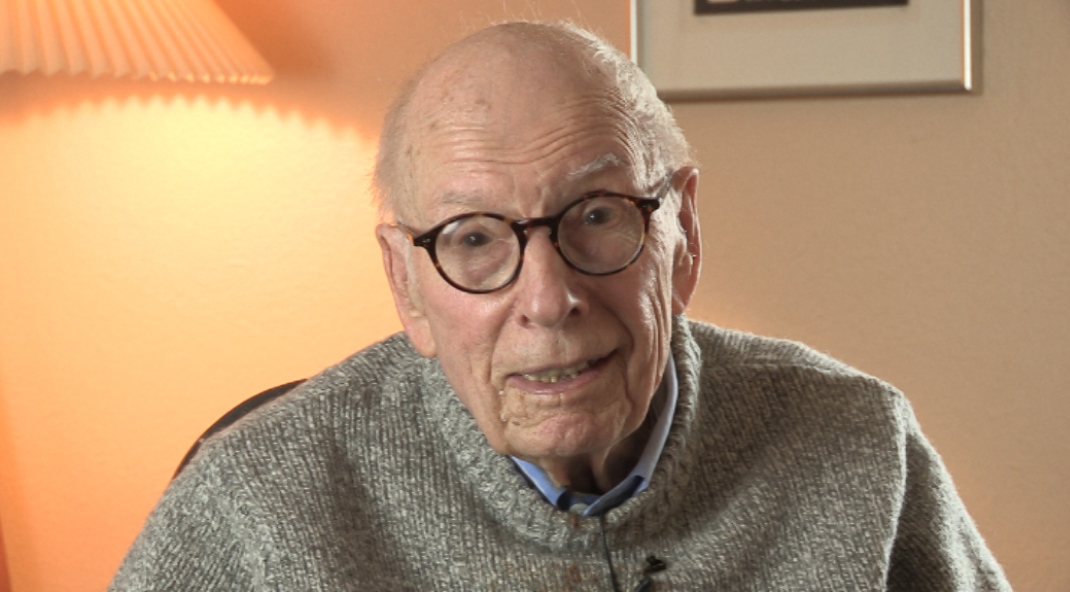NEXT STORY

Conflict in the classroom
RELATED STORIES

NEXT STORY

Conflict in the classroom
RELATED STORIES


|
Views | Duration | |
|---|---|---|---|
| 1. Remembering my father | 252 | 02:00 | |
| 2. Frustrated ambition | 109 | 01:50 | |
| 3. Why I don’t speak German | 142 | 04:13 | |
| 4. From ornithology to biology | 94 | 03:33 | |
| 5. A nightingale’s song | 82 | 01:23 | |
| 6. Conflict in the classroom | 115 | 01:34 | |
| 7. My distinguished friends | 99 | 02:07 | |
| 8. Julian Huxley’s ‘heresy’ | 97 | 00:48 | |
| 9. Bringing biology to Exeter Academy | 71 | 03:23 | |
| 10. The most successful exam I’ve ever had | 100 | 00:58 |

Around that time we were sent to a boarding school in Switzerland in the French part of Switzerland, not too far out of Geneva. And I just became enthralled by everything I could see in the little woods right next to the school, and it was just… I mean, it just absolutely trapped me. And my mother gave me her little binoculars that she used to take to the races. And that was bliss - everything was wonderful. And I tell you the thing I still remember so vividly. My bedroom was on the side of the building where there was a small wood, and so in the spring, I'd open the window wide. And every period I was going to sleep, I could hear a nightingale. And I've often wondered whether or not that was the thing that planted it in me because it was just so incredibly beautiful. And it's quite unbelievable, in a way.
John Tyler Bonner (born in 1920) is an emeritus professor in the Department of Ecology and Evolutionary Biology at Princeton University. He is a pioneer in the use of cellular slime molds to understand evolution and development and is one of the world's leading experts on cellular slime molds. He says that his prime interests are in evolution and development and that he uses the cellular slime molds as a tool to seek an understanding of those twin disciplines. He has written several books on developmental biology and evolution, many scientific papers, and has produced a number of works in biology. He has led the way in making Dictyostelium discoideum a model organism central to examining some of the major questions in experimental biology.
Title: A nightingale’s song
Listeners: Christopher Sykes
Christopher Sykes is an independent documentary producer who has made a number of films about science and scientists for BBC TV, Channel Four, and PBS.
Tags: Switzerland
Duration: 1 minute, 23 seconds
Date story recorded: February 2016
Date story went live: 14 September 2016